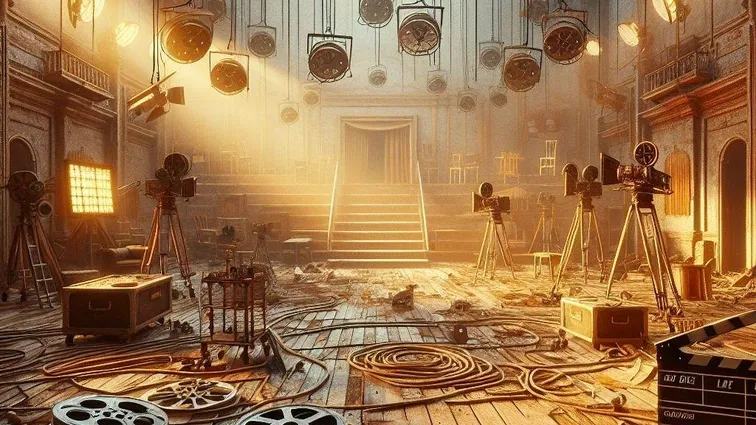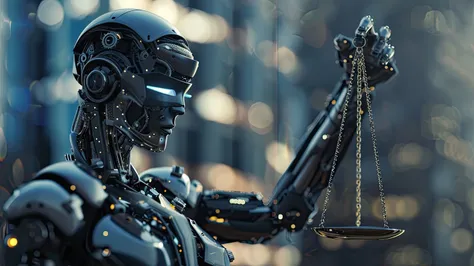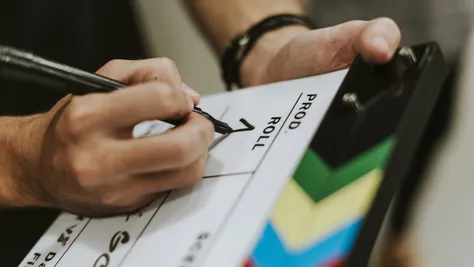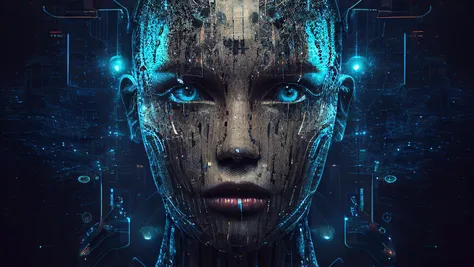The artificial intelligence (AI) boom is gradually making its way into a number of industries, including cinematography. The potential of AI to generate film characters, whether from scratch or based on a real-life counterpart, is driving the film industry deeper into the “tech waters”. In this context, however, it is necessary to consider the potential impact on the entire film industry as well as the challenges and risks of such an approach from the perspective of the personality rights of the actors concerned.
In the glamorous environment of Hollywood, the rise of AI seems to be casting a new perspective on the future of the filmmaking industry. There are countless examples – the most notable being the subtle rejuvenation of Luke Skywalker (or rather Mark Hamill) in The Mandalorian and The Book of Boba Fett, or of Harrison Ford in the latest Indiana Jones sequel[1]. Tom Hanks, on the other hand, has hinted that he could appear on movie screens in new films after his death thanks to AI[2], while sci-fi drama Black Mirror has glimpsed potential downsides of using the technology in its latest season, where a fictional AI was able to use users’ data to generate a series about their lives 24 hours apart[3].
However, this technological advance also has its opponents. The recently ended SAG-AFTRA strike (the US trade union for audiovisual workers) underscores the growing concern of actors and other film industry stakeholders who fear being replaced by AI and losing control over their own likeness, or their works and performances.
As the film industry will undoubtedly be integrated into the AI phenomenon, an important question arises: how exactly does the law view the replication or modification of an individual's (in this case, actors') likeness using AI? Let's try to answer this question in the context of Czech law.
Personality rights of actors
In the Czech Republic, an individual's right to their likeness[4] is protected by Section 84 et seq. of the Civil Code, whereby the basic prerequisite for the capture and subsequent reproduction and distribution of the one's likeness is the consent of the person concerned, which is in principle freely revocable[5]. There are only two statutory exemptions to the general requirement of consent, but these do not apply in relation to actors[6].
Therefore, if studios or production companies want to include any footage or scenes with a particular actor (his or her likeness or voice) in their films, their consent is required.
In the film industry, this consent is usually formalised through a so-called "release", which is a written contract in which the actor explicitly agrees to the capture, reproduction, and processing (e.g., through motion-capture and/or AI tools) of his or her likeness and artistic performances to the extent necessary for the production and subsequent distribution of the film in question. The extent of such granted consent is essentially at an individual’s discretion - it may be granted for one or more film projects, for a specific part of the likeness (e.g., voice), or even for the purpose of posthumous reproduction of the likeness.
Practical challenges
Although the above suggests that the current legislation is seemingly equipped to deal with AI-created film characters, in practice there are a number of uncertainties that Czech law does not explicitly address. A particularly problematic aspect is when AI creates a composite: a fully digital entity trained on the nuances of an actor's appearance, voice or behaviour, but not replicating him or her directly.
While such an AI-generated character does not directly mirror the actor, without the actor's consent to use his or her personality attributes to train the AI, a potential lawsuit could be successful. However, in this respect, we see as a potential challenge in particular the very cumbersome burden of proof that lies on the actor (especially if such a character does not resemble the actor in any way), which can make such litigation very difficult in practice. In other cases, such use of the actor’s attributes within AI datasets may even go completely unnoticed.
Some degree of transparency in this context could be brought about by the AI Act, which will likely oblige generative AI system operators to disclose copyrighted training data.[7]
Another pressing problem may be the aforementioned loss of control by the actor over his or her likeness, or rather the distribution of his or her likeness. Imagine a situation where an aspiring actor signs a release at the beginning of his or her career granting a production company extensive rights to capture, process and use his or her AI-created likeness for an extended period of time (e.g., 50 years) in any project.
Although the actor can in principle withdraw his or her consent at any time, the associated obligations entail a number of potential problems. Section 87(2) of the Civil Code expressly provides that if consent is granted for a fixed period and is withdrawn without a substantial change in circumstances or on other reasonable grounds, the actor becomes obliged to compensate the production company for any damage resulting from such withdrawal, with the financial consequences of such compensation being no doubt potentially substantial.
The situation is further complicated by the technical nature of AI training. Once an actor's likeness has been used to train the AI system, subsequent withdrawal of consent is an almost impossible exercise, as you cannot simply ask the AI to "forget" or "unlearn" what it has already been trained on.
This learned "knowledge" becomes an integral part of its model, meaning that even after consent is withdrawn, the foundations based on the actor's likeness remain embedded in the AI. In addition, it is very difficult to ensure that the AI does not use this learned data to extend or create characters in future projects, given that the trained model may have multiple derivations or be incorporated into broader datasets.
Conclusion
In our view, film producers who wish to exploit the potential of AI should proceed with caution when acquiring the necessary rights from actors or extras. The complete "buyout" of personality rights, or their unrestricted processing within AI systems, may seem beneficial in the short term, but in the long term it carries risks of potential litigation or reputational damage.
In general, however, we welcome the use of AI and its potential in the film industry. Nevertheless, stakeholders need to proceed bearing in mind the legal implications involved, many of which will need to be clarified in more detail in the future.
If you are addressing the use of AI in the film industry, do not hesitate to reach out to us. We have extensive experience in both film law and the legal aspects of AI - we know the steps to take and are ready to consult with you at your convenience to help you find an effective solution to any problem.
- [1] – However, it is not only about the faces or figures of individuals, but also about voices. An example of this is the recent "retirement" of James Earl Jones, who lent his voice to Darth Vader in Star Wars - the latter gave his consent to the use of archival voice recordings by a company that plans to use artificial intelligence to "recreate" Jones' younger voice from his previous films for future Lucasfilm projects.
- [2] – For more information, click here: https://www.bbc.com/news/entertainment-arts-65607420.
- [3] – For more information, click here: https://www.latimes.com/entertainment-arts/story/2023-07-11/actors-ai-fears-laws-legal-implications-artificial-intelligence.
- [4] – It should be added that according to professional literature, a likeness does not mean only the appearance of a person's face, but also any part of the appearance of his or her body, especially characteristic personal features, on the basis of which the person is generally identifiable.
- [5] – If there is no legitimate reason for revocation, the person concerned must pay compensation for the damage caused -see below.
- [6] – We summarised the latest information in relation to the forthcoming EU regulation in our earlier blog post here: https://www.havelpartners.blog/o-krok-blize-k-prijeti-pravidel-pro-umelou-inteligenci-chatgpt-pod-drobnohledem.








